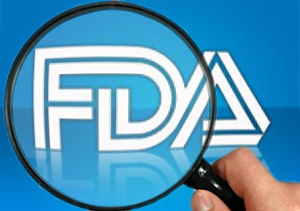
The FDA this month issued a rule that would keep confidential certain records pertaining to investigations into potential researcher misconduct at the National Institutes of Health, exempting such documents from federal Privacy Act requirements.
The rule aims to protect the identities of confidential sources in NIH investigations by preventing researchers under investigation from accessing records pertaining to their proceedings, according to an FDA notice in the Federal Register.
Under Public Health Service Policies on Research Misconduct, NIH and the Health & Human Services Dept. must maintain records related to all alleged or actual research misconduct, defined by as "fabrication, falsification, or plagiarism in proposing, performing, or reviewing research, or in reporting research results." That includes records on activities conducted in NIH facilities by any researcher, funded by NIH in any location or undertaken by any NIH employee as part of a training program.
The FDA last year issued the original proposal for the privacy rule, citing a need to ensure that investigations into alleged misconduct are not compromised. The proposal was pulled in January 2013 in response to a single objection submitted during the general comment period following the proposal. Thee federal watchdog agency finalized the rule this month after reviewing the objections and deciding that "the exemptions at issue are necessary to fulfill the agency’s responsibilities for addressing research misconduct," according to the Federal Register notice.
The new rule prevents those under investigation from accessing records pertaining to their own proceedings, a move that the FDA hopes will protect the identities of whistleblowers and sources who have requested anonymity.
"The exemptions are essential for NIH to protect the confidentiality of sources who provide information relevant to a research misconduct proceeding and to guard against the premature disclosure of research misconduct records that might obstruct or compromise proceedings," according to the notice. "The exemptions will thereby enable the NIH to maintain the integrity and effectiveness of research misconduct proceedings. Failure to adopt the exemptions would jeopardize the integrity and effectiveness of the NIH’s research misconduct proceedings."

